- Home
- Herbert Strang
Palm Tree Island Page 14
Palm Tree Island Read online
Page 14
CHAPTER THE NINTH
OF PIGS AND POULTRY, AND OF THE DEPREDATIONS OF THE WILD DOGS, UPONWHOM WE MAKE WAR
It was after about a week of this practice in archery that we removedthe covering from the hole where we had stored the bread-fruit, andlooked to see how it was. To our great delight it was perfectly good,though it had changed its colour, being now somewhat yellowish, andalso its smell, which was now something like that of yeast. This mademe think that the paste was fermenting, as indeed it was; but it seemedto be none the worse, and we cooked a little and ate it with relish,finding it rather acid, like cheese. Being satisfied on this point, weimmediately set to work to dig a larger hole, which we filled in likemanner with a great quantity of bread-fruits, mashing them to a pastefirst in our earthen vessels. And having our anxiety thus relieved onthe score of provision for the winter, we ought to have gone back toour work on the big hut, but we were so bent on improving ourmarksmanship, Billy being determined to go pig-hunting, that we spentnearly all our time in practising with our bows and arrows. By thismeans we made ourselves pretty fair marksmen at the stationary target,but when Billy talked about going out to shoot pigs, I said that hewould find it a very different matter to hit a moving thing. However,he would not listen to me, but left me making some new arrows while hewent off by himself. He came back after a long time, empty-handed andvery crestfallen, having lost two arrows and broken a third, withouthitting a single pig.
"I tell you what, master," says he, "you carry the target while I takea shot at it: that will be as good as a running pig, and learn me toshoot 'em."
"And suppose you hit me?" I said.
"Well, I might, that's true," he said, "you being bigger than a pig.Don't I wish I knew how that there Little John aimed when he wasshooting at a deer!"
Clay Saucepans, and Tongs of Wood]
This made me think whether we could not devise a moving target, andthough I could not hit upon any means for several days, I did at last,and we tried it, and it answered my expectations very well, andmoreover furnished us with a kind of sport, which was very grateful tous in our loneliness. What we did was this: we made a target somewhatlarger than our first, in the same manner, but shaped like a man, thatis, the top was smaller than the rest, but we did not attempt to makelimbs. We made it very light, for this reason: that we strung it to athin rope made of the fibres of the plant I have mentioned before, thisrope being tied to two trees, about twenty yards apart, and at theheight of a man from the ground. We hung the target (or the GuyFawkes, as Billy called it) to the rope by a large loop, and to this wetied another rope, but thinner, so that the guy could be drawn easilyalong the rope from tree to tree. Then we took turns, the one shootingat the guy with his arrows while the other drew it along as quickly ashe could, and we tried which of us could plant the most arrows in thefigure while it moved over this space of twenty yards, the loser havingto prepare the food for next day's meals. We found it very good sportand very good practice too, and there was not much to choose betweenus, though I think I became a trifle more expert than Billy, heexcelling me in muscular strength, but I having, or acquiring, acertain knack with which strength has nothing to do.
You may be sure that as soon as we had attained to any skill in hittingour running man Billy was mad to go out once more and shoot pigs, andwe were talking about doing so, as we ate our breakfast one morning,when we heard a great uproar in the wood just below the mountain,running out towards the natural archway. It seemed as if all the dogsin the island were barking and yelping at once. Wondering what thecause might be, we snatched up our bows and arrows, having also ouraxes as usual, and hasting across the lava bed towards the noise, wecame upon a great sow with a litter of tiny pigs, and twenty or moredogs around them. This amazed us, for we had never seen the dogsattack the pigs before, and I guessed that they would not have done sonow, only the sow was limping as if one of her legs was broken, and Ithought she might have fallen from a height, the ground hereaboutsbeing very rough and jagged. However, she was making a good fight ofit against the dogs, and we stopped to watch the struggle, forgettingour own errand.
The dogs, as I have before shown, were possessed of a certain degree ofcunning, and while some of them held the sow at bay, others rushed inamong the litter and carried off at least one of the piglets; themother, threatened on all sides, being unable to defend all her family.After we had watched the scene for a little, Billy whispered to me, "Isay, master, you ain't a-going to let the dogs have all the pork?" Iagreed that we had as good a right to it as they, so we ran forwardshouting, and the dogs, which had seized enough of the litter to make avery good meal, ran away with their booty, being plainly afraid that weshould attempt to take it from them.
When the sow spied us she knew that we were as dangerous enemies to herfamily as the dogs; at least she guessed it, for she made a very savagerush at Billy, who was nearest to her, and would have overthrown himbut that she was lame and he was nimble. We took counsel together whatwe should do, having a mind to capture her and lead her to oursettlement by the lake, for we knew that the little ones would followher, and Billy had a great notion of starting a piggery. But we sawthat, her leg being broken, we should have great difficulty in leadingher over the hill, even if our united strength could pull her: yet wedid not like to leave her to the mercy of the dogs, which wouldcertainly worry her slowly to death, helpless as she was. Accordinglywe thought it best to kill her outright, and while Billy did this withhis axe, I easily caught two of the little ones, which remained neartheir mother, and held them by the legs until Billy came to myassistance, and then we tied their legs together with creepers, so thatthey could not escape. Then Billy caught another one, and reachedafter the fourth, which, however, had become alarmed and scamperedaway, only to be snapped up by the dogs.
Now the question was, how should we bring the dead sow and the livepiglets to our hut by the lake?--for we had determined to eat the sowand to keep the little ones alive. The sow was too heavy for one, oreven both of us, to carry over the steep and rocky hillside; the littlepigs were too small to be driven and must be carried. If we took thesow and left the pigs, they would be seized by the dogs; while if wetook them and left the sow, there would be very little remaining of herby the time we came back. We settled that I should carry the pigshome, and bring back ropes for dragging the carcase, over which Billywould keep guard; so I took a little squealing one under each arm, andBilly slung the third to my back with a creeper, and I was about tostart when Billy said: "What if old father bacon hears their squealsand comes after you?" In that case I should certainly have to drop oneof the pigs to wield my axe: my bow and arrows, of course, I could notcarry; but I must take the risk, and so set off, very well laden.
I came safely to our hut, and shut up the pigs inside (which was atrouble to us afterwards, but there was no help for it at the time, wehaving no other place in which to secure them), and then, taking someof our ropes, I hastened back to Billy. But I had no sooner got to thetop of the slope above the lake than I heard the same barking andyelping and snarling as before, and in the same direction. This mademe hurry my steps, and 'twas well I did so, for when I came upon thescene, there was Billy by the sow, and the pack of dogs leaping withgreat uproar about him, he having his back to a rock, and very manfullywielding his axe to keep off the furious animals. The moment I sawthis I gave a great shout, having before observed that nothing was morelikely to scare these wild creatures, and rushed upon them, and seeingme they turned tail and scampered away into the wood.
I found Billy in a very sad case. He told me that I had not longdeparted when the dogs came creeping up, and then, being worked into afrenzy by the sight and the scent of the carcase, and emboldened byseeing only one instead of two boys, they had made a rush upon him. Heshot at them when he perceived that they were closing in, and I foundthat one arrow had killed a dog, another was sticking in the ground,and a third had broken against a spar of rock. Then he could no longershoot, because they
were upon him, but he killed two with his axe, notbefore he had been severely bitten about the legs, as he tried toprevent them from mangling the sow, and indeed he was in very greatdanger when I appeared to his rescue. The carcase had been so torn bythe dogs that I did not care to have anything more to do with it;besides, Billy was so severely hurt, though he did not complain, that Isaw he could give me little help in dragging the carcase home; forwhich reasons we decided to leave it to the dogs, and I only regrettedthat we had not done so before. I was so anxious about Billy,wondering whether his blood would be poisoned by the bite of the dogs,that I forgot to pick up our bows and arrows until he reminded me ofthem, and indeed he insisted on my gathering up two of those he hadshot, the third being broken, saying that we could not spare any nowthat we had to reckon the dogs as our mortal enemies. Leaving thecarcase, then, which the dogs were at instantly, we returned to ourplace, and then I bathed Billy's wounds with water from the lake, andtore a great strip off my shirt to make bandages, for which Billyblamed me, but what else could I do?
[Sidenote: A Pig-sty]
Since we could not endure that the pigs should be with us in the hut(they had been there too long already), we had to build a sty for them,or rather I had to, for Billy tried very bravely to help me, but had togive up after a short while. For some days he wore a very troubledlook, asking me whether I thought he would go mad; but he cheered upwonderfully as the days passed and he did not take a dislike to water.I made as good a sty as I could with logs and branches, tying up thepigs inside so that they could not get away, but we were awakened inthe middle of the night by a loud squealing, and when I ran out I foundthat the dogs had come and scratched away a part of the weak fence, andI was only just in time to save the piglets from them. Since I coulddo nothing to strengthen the sty in the darkness, I built a great firenear it, and sat by it for the rest of the night, in no very agreeableframe of mind, I assure you, and wishing that we had not brought thepigs, for being wild they were scarce likely to thrive in captivity.However, Billy was so set upon commencing swine-herd that I gave in tohim, and next day began to build another sty, somewhat farther from thehut, and very much stronger, in which we put two of the pigs, killingthe third and roasting a part for our dinner, hanging the rest up inthe smoke of our fire to cure it. For roasting we made a tripod liketo those that gipsies have, and not having any metal we made it ofpottery ware, moulding the clay about three straight saplings.
Our Pig-sty]
We had had so little flesh-meat hitherto that we had not felt the lackof utensils, such as knives and forks; for bread-fruit needed nothingbut our fingers, and eggs we always boiled hard. But now that we hadthe means of procuring flesh, I began to think of knives and forks andother things which we commonly use at home, though I have been toldthat our forefathers employed nothing but their fingers up to not sovery long ago. Seeing that we should not be able for a few days totake up our work on the new hut, while Billy was recovering of hiswounds, I thought it a fair opportunity to provide ourselves witharticles of this sort if we could. We had no lack of material forhandles, and it was not a very hard matter to shape a two-pronged forkof wood with the axe; but it was different with the knives, since wehad nothing that would serve for blades except flints. However, bysearching about the hillside I found several thin and fairly flatpieces of flint which we contrived to split still thinner and tosharpen by continually grinding them against the rocks, and when we hadfixed them into handles which we made of the hollow shoots of a certaintree, we had knives, clumsy indeed, and not very sharp, but good enoughto sever the limbs of the animals we killed for food, and also to partthe meat into pieces when it was cooked.
Knives and Fork]
[Sidenote: Salt and Water]
This same matter of meat put it into our heads to get salt forourselves, and fresh water; for neither could we relish the foodwithout the one nor quench our thirst without the other, cocoa-nutjuice after pork having very disagreeable effects. We got water fromthe sea in some of the shallow pans that I had made, and found that byleaving these exposed the water in course of time evaporated, leaving avery rough and common kind of salt behind, and mixed with othersubstances. As for fresh water, we found when we boiled water from thelake, and allowed it to stand till it cooled and then poured it off,that it almost wholly lost the sulphurous taste, and we could drink itwithout hurt, which was a great comfort to us. We also put some of ourpans out when rain fell, which happened pretty often, so that I haveforgot to mention it; and with our fare thus enlarged, and beingprovided with conveniences that we had not dreamt of at first, our lotwas much improved; and indeed we only wanted some means of replenishingour wardrobe to be set up for life.
Clay Pail, the Handle of a Tough Root, bound on withShrunk Hide]
What with one thing and another, I think near a month must have passedbefore we returned to our work on the big hut. There may be some whowill blame us for this dilatoriness, and say that we ought to havecontinued on one task until it was finished; but I will say to themthat if we had done so we might not only have fallen ill for want ofchange in our food, but we might have starved in the winter through notlaying up a store; and besides, these critics have never been, I daresay, alone upon a desolate island. However, we did go back to ourwork, and the four corner posts being set up, as I have said, we hadnext to build the walls, which we did in the following manner.
[Sidenote: The Hut]
Between the corner posts, and about six inches apart, we planted strongpoles about three inches across, leaving a gap on the side farthestfrom the lake, this being our doorway. On the outside of these uprightposts we lashed a number of thicker logs, twice as thick indeed as theothers, by means of creepers, laying the logs horizontally one uponanother. This was only done with prodigious labour, as you may guess,all the poles and logs having to be felled and trimmed by us with ourrude instruments, and if I had hitherto been able to keep count of thedays, I should have clean lost it now, for we did not desist from ourwork until the walls were finished, and every day was like the one thatwent before and the one that came after. When the walls were finished,and it was a question of the roof, we deliberated for a little whetherto make it flat, or to give it a pitch, like the roofs of cottages athome in England. What determined us was the discovery that water wasbeginning to ooze through the flat roof of our small hut; the rainsbecoming heavier and more frequent as we drew near to the winterseason. Accordingly we gave a pitch of about four feet to our roof,thus forming a fair slope on each side to carry off the rain water.The framework of the roof was formed of bamboos lashed together, andresting on grooves which we cut with much toil in the tops of the wallposts. In order to keep out the rain we decided to thatch the roofover, and for this purpose we collected a great quantity of grasses andreeds from the borders of the lake. Billy told me that the thatchedroof of a cottage belonging to his uncle at Plumstead was full offleas, and as we did not desire to be visited by any such creatures wesoaked our materials very thoroughly in the sulphurous water of the hotspring, thinking this would repel them, afterwards drying it in thesun. We need not have troubled ourselves in this matter, for duringall the time we dwelt on the island we saw neither fleas nor any othernoxious insect; indeed, the grasshopper was the only kind worthmentioning, and we grew to like their cheerful song in the evenings.
The thatching took a long time, neither of us having the least idea howto set about it, and I doubt not a true thatcher would have laughed atour botching and bungling; but we did as well as we could, and weremightily pleased with ourselves when the work was done. There onlyremained the door, and if it had not been for the wild pigs and dogs onthe island we should never have troubled about a door at all, theclimate being such, even in winter, which was now upon us, that we neednever have closed our house to keep out the cold. But seeing that weshould never be secure from molestation by these beasts without a door,we made one of stout logs lashed together, a little wider than thedoorway, and since we could not hinge it, we co
ntrived so that when wewished to close the hut at night or when we left it, we slid the doorbetween the wall and two stout posts which we drove into the groundinside. As for a window, we did not need one, since we were up at dawnand abed with the dark, and had the doorway always open when we were inthe hut during the daytime.
I said we were abed with the dark, but we did not always sleep at once,and oftentimes lay talking, so that we knew pretty nearly all abouteach other before we had been many months on the island. Billy's lifehad been so hard before he ran away to sea that I believe he was morecontented now than ever before, having got over his first fears ofsavages and starvation, and the old smoker, as he called the burningmountain. (This, I ought to say here, had not been violently activesince we first came to the island, though we sometimes heard faintrumblings, and saw spurts of steam and water, but never so great as atfirst.) I was not near so contented as Billy, for my life had been veryeasy and comfortable at Stafford, and I remembered my kind friendsthere, and sometimes felt in the lowest deeps of misery when I thoughtI might never see them again. But when I reflected I saw that I oughtto be thankful that I was not cast on a barren island, or amongsavages, and there was always a hope that some navigator might sailtowards our island and spy our flagstaff, though we often vexedourselves with the thought that a vessel might pass us in the night andwe know nothing about it. I think by this time we had altogetherforgotten the men of the _Lovey Susan_, and did not in the leasttrouble ourselves to guess at what had become of them, though Billy didsay once that he was sure they were eaten up by savages.
[Sidenote: Clothes]
Our large hut being finished, I thought we deserved another holiday,having never left working at it for many weeks, or perhaps months. Butthe very first day we purposed being idle, a great storm of rainovertook us as we roamed over the hills, and drove us back to our housefor shelter. We were drenched to the skin, and our garments were soold and tattered that we thought they would fall to pieces when westripped them off to dry them; and moreover, though the air was notcold, as we know cold in England, yet it was chilly sometimes,especially at night, and I feared sometimes when we got wet, that weshould be seized with an ague. We began to consider whether we couldnot by some means contrive to make ourselves clothes, and I remindedBilly that we had made a kind of cloth for our flag out of the bark ofthe bread-fruit tree.
"Yes, but we ain't got no scissors," says he, "and there's a deal ofcutting out to be done in making clothes. My mother--not my realmother, you know--used to make my breeches out of father's, and youshould have seen her snipping at 'em, gnashing her teeth together allthe time. We can't cut out with our axes, or them things you callknives."
This was true, but I suggested we might beat out the strips of barktill they became of the proper shape. Billy scoffed at this. "Whatabout patterns?" he said. "She used to have paper things, and lay 'emon the cloth and cut round 'em, and you can't make sleeves without 'em,that I'm sure of. Besides, where's our needle and thread?"
"We've made thread out of the fibres of the cocoa-nut," I said, "and asfor needles, couldn't we point some thin sticks, and try them?"
"We can try," says he, "but it won't be no good, and you've forgot allabout thimbles."
We did try, and I was not very much surprised when we failed, forthough we could point a stick with our flints, we had nothing withwhich we could pierce the eye, and we found that tying the thread tothe end was by no means satisfactory. However, we did contrive to puta few patches into our breeches by sticking on some of the bread-fruitcloth, which was soft and brown, with the sticky stuff that came out ofthe bark when we beat it. I should mention that we were not able touse this stuff immediately, for it did not make the cloth adhere; butwe found that if we left it for a day, it became hard, and being thenheated in one of our pots over a fire, it turned into a very fair glue.Besides patching our breeches thus, we made ourselves long coats, orrather cloaks, for they had no sleeves, being simply a long piece ofcloth with a hole in the middle, and though we laughed at each other agood deal when we put them on, they covered us from neck to heel, andwere very useful in keeping off the rain. And while we were aboutthis, we thought we might as well make hats too, if we could; and aftermany failures we managed to fashion some bonnets out of cocoa-nutleaves, which kept our heads dry, and when the summer came defendedthem from the sun's heat, and our necks too, for we stuck on flaps atthe back.
Billy's Palm-leaf Hat]
We had started a piggery, as I have mentioned. At first it was a greatdeal of trouble to us, for the dogs came yelping round the sty atnight, and the wild pigs also tried to reach the two piglets we hadcaptured, and we had to be constantly on the watch lest the walls ofthe sty should be broken through. However, these wild inhabitants ofour island in course of time seemed to accept the piggery as part ofthe order of things, and left us in peace. But our troubles werestarted again when Billy all of a sudden conceived the notion of apoultry run. In the course of our second holiday, after our new hutwas finished, we chanced to discover several nests of hens, which wehad formerly sought for in vain, they being cunningly concealed or elsevery inaccessible. Domestic fowls do not seem in general to be veryplentifully endowed with wits, but the fowls on our island, having toprovide against the rapacity of rats and dogs and pigs, certainly hadmore intelligence than ordinary; and the hens were not particular aboutthe comfort of their nests, so long as they could find a shelter--somesecluded nook among the rocks where they could lay their eggs. Billyhad said more than once that he would like to have a poultry run, butthough we now and then found eggs, and once or twice managed to bringdown a fowl with our arrows, which we roasted or boiled, we had neveryet been able to catch one alive. They frequented mostly the littlepatch of woodland in the extreme west of the island, and there wesometimes saw them roosting in the upper branches of tall trees. Itwas near this spot that we found the nests I have mentioned, but thebirds were very wary, and flew away at the first sign of our approach.
[Sidenote: Fowling]
It was clear that if we were to catch them, we must snare them in someway or other, and having not thought of making nets, which we mighthave done with cocoa-nut fibres--indeed, we did afterwards--we wonderedwhether the sticky substance that came from the bread-fruit bark mightserve us as birdlime. We tried it, but we found that it hardened tooquickly for our purpose; at least, that was how we explained our wantof success; and we thought that if we mixed it with some othersubstance that would keep it moist the result might be different. Wetried bread-fruit, and then shredded cocoa-nut, but neither waseffectual; and then, almost as a last resource, we made the experimentwith a nut that I have not before mentioned, because we had not foundit of any use as food. It grew on a tall and very leafy tree, and theground was at this time strewed with the olive-green fruits which hadfallen, being over-ripe. We easily removed the outer covering, andwithin was a hard shell, something like a walnut, only smooth, andinside the shell was a whitish kernel, which we had found was not verypalatable; but it was very oily, and we thought this, when pounded,might mix very well with our glue, as I may call it.[1] Accordingly wedid this, and taking a quantity of the mixture to the spot which thefowls haunted, we smeared a fallen branch with it, and having spreadsome small pieces of baked bread-fruit as bait, we went among the treesto await the issue.
[Sidenote: A Fowl-house]
Billy was patient enough when work was a-doing, but he never could bidepatiently, for which reason many holidays were not good for him. Heran so often to the edge of the wood to see if any birds were snared,that I am sure he was the cause why we had to wait so long, the birdstaking alarm at his movements. At last I persuaded him to go with meback to our house, and when we returned after a long interval wesuspected by the unaccustomed cackling we heard that our birdlime hadproved successful; and so it was, for when we came to the branch, therewas a fine hen fluttering her wings and cackling most lamentably, andalso a kind of wood pigeon, which did not make near so much noise.Billy w
rung the neck of the pigeon in an instant, saying it would makea tasty morsel for dinner, and then we tied the legs of the hen, andcarried her home. But one hen does not make a poultry run, and it wasa considerable time before we caught any more fowl, the fate of thefirst seeming to have warned the rest. However, we did succeed incatching four or five more at intervals, and we turned our small hutinto a fowl-house, putting poles across for them to roost on. It is astrange thing, but after a little while the fowls, which had beforescarce made a sound, began to cackle and crow just as the fowls do inEngland, and Billy said that finding they were now safe from theirenemies, and fed regularly, they were much happier than before, andshowed it by their singing. How that may be I know not, but I aminclined to think that they had better kept silence, for one morningafter a night of wind and rain, during which we heard that strangesound we heard on our first night, we found the gate of our poultry runopen and all the fowls gone, leaving only a great quantity of feathersscattered about, both inside and out. This told us pretty plainly whathad happened, and if we needed assurance, we had it in the footprintsin the sodden ground.
Our Small Hut turned into a Fowl-house]
"'Tis them rampageous dogs, master," cried Billy in a fury. "Thethieving villains! And one of the hens beginning to sit, too! I wishwe could poison 'em."
"We can't do that," I said, "but we shall have to make war on them, orwe shall never feel safe, either for our belongings or ourselves, forthey attacked you, and I am pretty sure that if one of us was hurt andcould not count on the help of the other he would soon be torn inpieces. We must teach them a lesson."
"Yes, but how?" says Billy. "They're such cowards that they won'tstand still to be shot at."
"Nor would you, if you were a wild dog," I said. "I think we hadbetter set a trap for them."
[Sidenote: War on the Dogs]
"Yes, and catch 'em alive oh!" says Billy, and we straightway began toconsider of the kind of trap that would serve us best, Billy favouringa running noose, which seemed to me not very sure, so I proposed a pitcovered over with branches and leaves. We tried this, and before wewent to bed we put a good-sized piece of roast pork (Billy having shota pig that day) on the covering of the pit, hoping that the dogs wouldbe drawn to it by the smell and then would tumble into the pit, wherewe should find them in the morning. In the middle of the night weheard a yapping and yelping; but we did not get up, for one thingbecause it was dark and we could scarcely have seen to deal with ourcaptives. However, in the morning we found the pork gone and also thedogs, and when we examined the pit we saw that some had fallen in butscrambled out again up the sides, though how they did it we never couldtell, the hole being of a pretty good depth. This failure did notslacken our determination, and we soon thought of a more subtle trick,to which there was one drawback in the fact that we had no means ofmaking a good torch, which seemed essential to it. We could, ofcourse, have made a great blaze with our fire, which we had never letgo out since we had first kindled it, except when a great rain put itout; but that would as like as not have defeated our own ends.However, it chanced that one evening we made a discovery which wasuseful to us in this particular, and much more afterward, as willappear.
I have mentioned the nut we pounded and mixed with glue to make ourbirdlime. Well, since we did not wish to use up too many cocoa-nuts ortoo much of our bread-fruit paste for feeding our two pigs, which werethriving wonderfully, we gave them these other nuts, which theyappeared to like very well. On this evening I speak of, inreplenishing the fire to cook our supper, we happened to throw into ittwo or three nuts which had got among the fuel, and we observed thatthey burned with a very bright flame, quite different from the flame ofwood or cocoa-nut shells. We did not think any more of it for themoment, but when I lay in bed (I say bed, but it was only leaves anddried grass), our house being pitch-dark, I thought all of a suddenthat perhaps we could make a candle of these nuts if we wished, thoughwe had no need of a light, having nothing to read. I called out toBilly to know if he was awake, and telling him of my notion, he said,"What's the good?" which I remember he always did say when I suggestedanything new. However, I resolved to see whether I was right, and nextday I put two or three kernels together, and kindled them, and theyburned with a light like a candle's, but with a rather offensive smell.
We at once set about making a torch, and finding that we had adifficulty in getting the kernels entire out of the shells, which werevery hard, we thought of boiling them, and then found that the shellscracked with the slightest tap, so that the kernels came out whole.When we had some twenty of these kernels we skewered them together on athin, hard stick, and so had a torch, and there being now no obstacleto the trick I purposed playing on the dogs, we took one of our pigsinto the house, and surrounded the other with a kind of stout stockadeinside the sty, and at nightfall we left the gate of the sty open, butcontrived that we could easily close it by means of a rope which wecarried into our house. We did not go to bed, but waited, holding ourtorch ready, with flint and tinder, and also a couple of the spears Ihave before mentioned, which, although rude weapons, were the fittestfor the work in hand.
It was not long before we heard the light patter of feet, and soonafter the squealing of our decoy. We waited a little, so as to giveour expected guests plenty of time to establish themselves, knowing toothat they would not be able to do any harm to the pig, and then wepulled the rope, so closing the gate upon the intruders. Then Ikindled the torch, and holding it aloft in my left hand, I rushed outwith a spear in my right hand, and Billy armed in like manner. The stywas a good way from the house, and before we got to it the dogs thatwere outside, alarmed by the unwonted glare and by our shouts,scampered away into the darkness, leaving their comrades howling andyelping in the sty, and the pig squealing too in a terrible fright.Having the prisoners now at our mercy, for they could not leap thewalls of the sty, we doomed them to instant execution, and when some ofthem fled for refuge into the covered part of the sty, we took off aportion of the roof, and so fell on them again, and did not desistuntil we had killed every one. We left them there until the morning,and then carried them forth, nine in all, and Billy insisted onskinning them, saying that their coats would make fine mats for ourhouse-floor, which indeed they did when they had been well washed inlake-water and dried in the open air. The vengeance we took had anexcellent deterrent effect on the rest of the pack, which no moremolested us, at least in that part of the island. We caught more fowlsto replace those that had been stolen, and captured the litter ofanother sow, which we killed for food, and were happy in the thoughtthat by natural increase our fowls and pigs would in course of timeprovide us with as much food as we needed, or even more. We kept thehides of those we killed, though we had no immediate use for them.Billy said he wished he could make a pair of boots, for the roughground was very troublesome to his bare feet, and my boots were verymuch worn and, indeed, scarcely held together. But we knew nothing ofbootmaking, and for some time did not attempt to provide ourselves withfootwear, though afterwards we contrived to make some strange anduncouth foot-gloves: I can call them by no other name.
[1] This was clearly the candle-nut, of which more is saidpresently.--H.S.

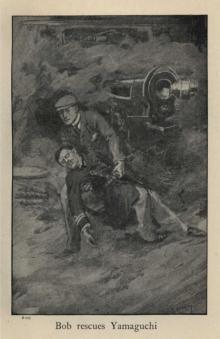 Kobo: A Story of the Russo-Japanese War
Kobo: A Story of the Russo-Japanese War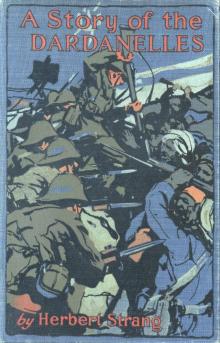 Frank Forester: A Story of the Dardanelles
Frank Forester: A Story of the Dardanelles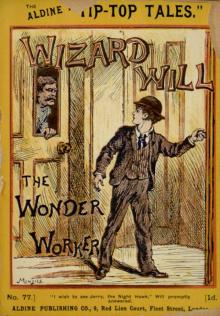 Wizard Will, the Wonder Worker
Wizard Will, the Wonder Worker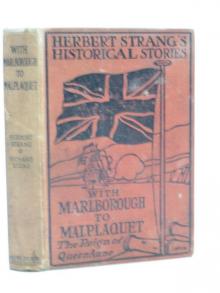 With Marlborough to Malplaquet: A Story of the Reign of Queen Anne
With Marlborough to Malplaquet: A Story of the Reign of Queen Anne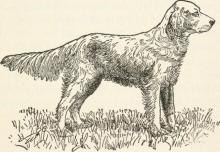 The Dogs of Boytown
The Dogs of Boytown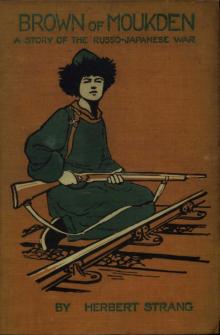 Brown of Moukden: A Story of the Russo-Japanese War
Brown of Moukden: A Story of the Russo-Japanese War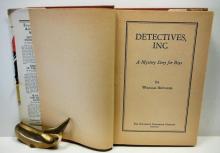 Detectives, Inc.: A Mystery Story for Boys
Detectives, Inc.: A Mystery Story for Boys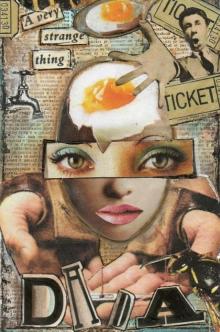 Bright Ideas: A Record of Invention and Misinvention
Bright Ideas: A Record of Invention and Misinvention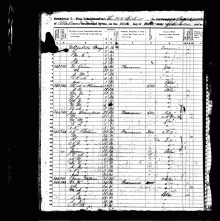 Lost in the Cañon
Lost in the Cañon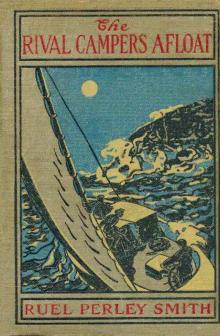 The Rival Campers Afloat; or, The Prize Yacht Viking
The Rival Campers Afloat; or, The Prize Yacht Viking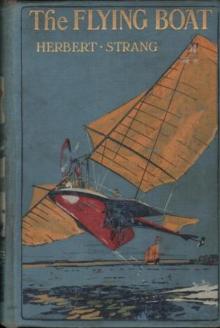 The Flying Boat: A Story of Adventure and Misadventure
The Flying Boat: A Story of Adventure and Misadventure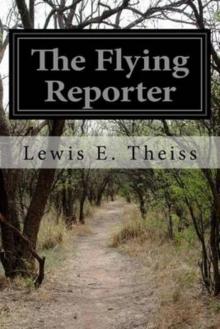 The Flying Reporter
The Flying Reporter Jack Hardy: A Story of English Smugglers in the Days of Napoleon
Jack Hardy: A Story of English Smugglers in the Days of Napoleon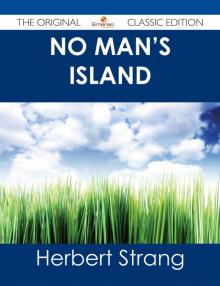 No Man's Island
No Man's Island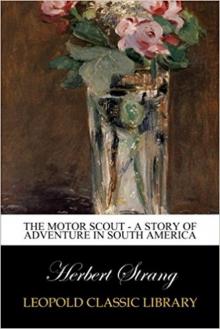 The Motor Scout: A Story of Adventure in South America
The Motor Scout: A Story of Adventure in South America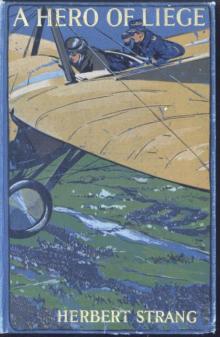 A Hero of Liége: A Story of the Great War
A Hero of Liége: A Story of the Great War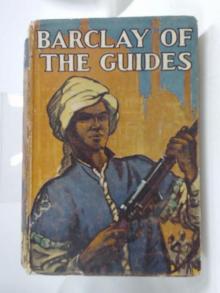 Barclay of the Guides
Barclay of the Guides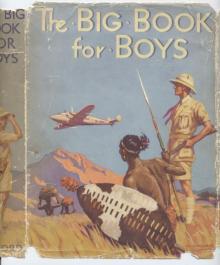 Carry On! A Story of the Fight for Bagdad
Carry On! A Story of the Fight for Bagdad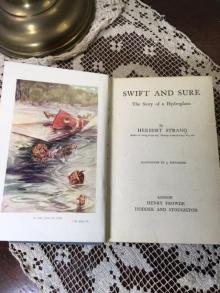 Swift and Sure: The Story of a Hydroplane
Swift and Sure: The Story of a Hydroplane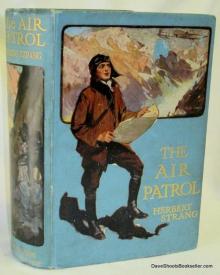 The Air Patrol: A Story of the North-west Frontier
The Air Patrol: A Story of the North-west Frontier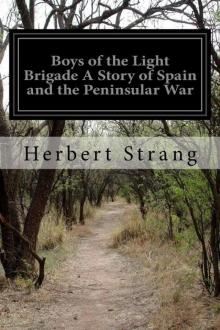 Boys of the Light Brigade: A Story of Spain and the Peninsular War
Boys of the Light Brigade: A Story of Spain and the Peninsular War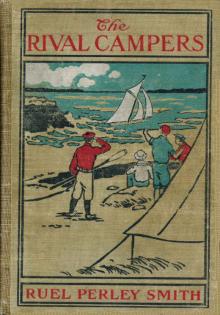 The Rival Campers; Or, The Adventures of Henry Burns
The Rival Campers; Or, The Adventures of Henry Burns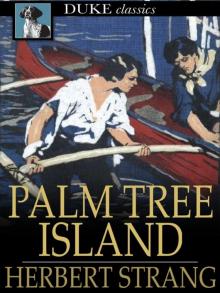 Palm Tree Island
Palm Tree Island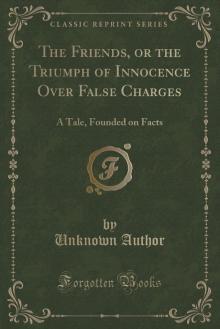 The Friends; or, The Triumph of Innocence over False Charges
The Friends; or, The Triumph of Innocence over False Charges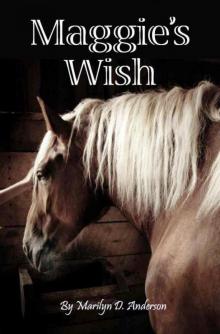 Maggie's Wish
Maggie's Wish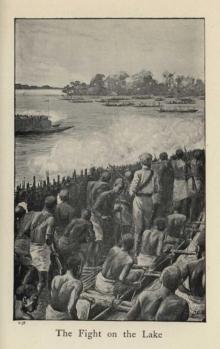 Tom Burnaby: A Story of Uganda and the Great Congo Forest
Tom Burnaby: A Story of Uganda and the Great Congo Forest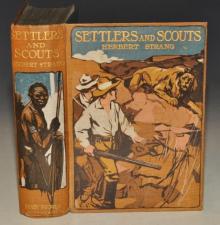 Settlers and Scouts: A Tale of the African Highlands
Settlers and Scouts: A Tale of the African Highlands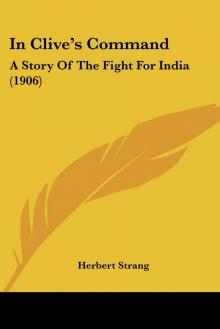 In Clive's Command: A Story of the Fight for India
In Clive's Command: A Story of the Fight for India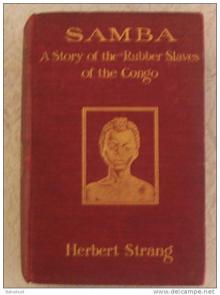 Samba: A Story of the Rubber Slaves of the Congo
Samba: A Story of the Rubber Slaves of the Congo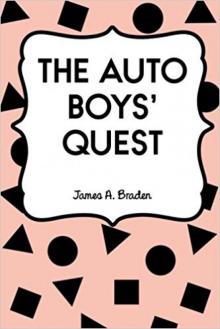 The Auto Boys' Quest
The Auto Boys' Quest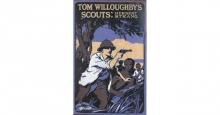 Tom Willoughby's Scouts: A Story of the War in German East Africa
Tom Willoughby's Scouts: A Story of the War in German East Africa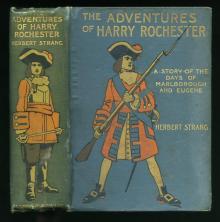 The Adventures of Harry Rochester: A Tale of the Days of Marlborough and Eugene
The Adventures of Harry Rochester: A Tale of the Days of Marlborough and Eugene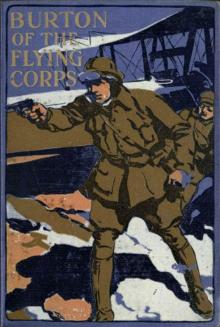 Fighting with French: A Tale of the New Army
Fighting with French: A Tale of the New Army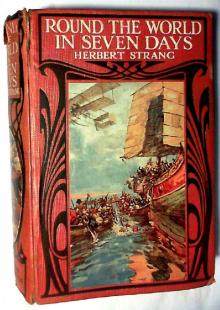 Round the World in Seven Days
Round the World in Seven Days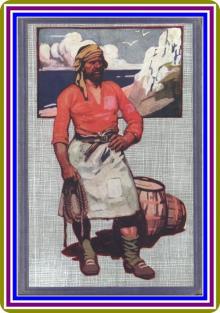 The Adventures of Dick Trevanion: A Story of Eighteen Hundred and Four
The Adventures of Dick Trevanion: A Story of Eighteen Hundred and Four